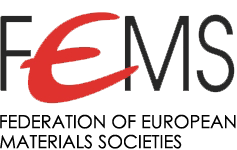FEMS Honorary Members
The status of FEMS Honorary Member is conferred on appropriate individuals by the FEMS Board (previously known as FEMS Executive Committee).
Current FEMS Board members cannot be elected as Honorary Members. Past FEMS Board members can be elected, although previous membership of the FEMS Board/Executive Committee is not a requirement. Election is on the grounds of services or contributions to FEMS or to the wider Materials community.
Election to the status of FEMS Honorary Member is for life. Once the offer of election has been accepted, information about the member, including the grounds for election, will be posted on the FEMS website. A maximum of 2 new honorary members can be designated every two years, and awarded at FEMS EUROMAT conferences.
The nomination of individuals from Member Societies is welcome and should include one letter of support from the FEMS Member Society, co-signed by five (5) members of at least 3 different FEMS Member Societies. Nominations are subject to approval by the FEMS Awards Selection Committee.
Honorary membership carries the following privileges and duties:
- Annual Invitation to attend the FEMS General Assembly, with the same voting rights as other invited attendees.
- Free registration for attendance at the biennial FEMS EUROMAT conferences, including participation in the banquet dinner.
- Automatic membership of the FEMS Alumni Association
- The FEMS Honorary Members collectively constitute a consultative body, expected to be able to act in an advisory capacity for the FEMS Board. Examples of such activities include the reviewing of nominations for Prizes, helping to identify individuals suited to join the FEMS Board or to assist with FEMS EUROMAT conference organisation, nomination of Plenary Speakers, suggestions for new initiatives, etc.
If you wish to submit a nominations for a FEMS Honorary Member, please get in touch.
Margarethe Hofmann-Amtenbrink | FEMS President 2014-2015
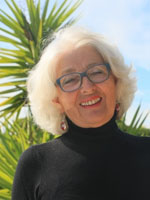 Margarethe Hofmann-Amtenbrink began her work in 1968 as an assistant for metallography (Lette Verein, Berlin) and worked in the German industry for 6 years. She then studied foundry technology in Duisburg and materials science at the Technical University of Berlin, and received her doctorate in materials science at the Max Planck Institute Stuttgart, Powder Metallurgical Laboratory under Prof. Günter Petzow and at the Technical University of Berlin in 1985. Married with a Swiss Foundry & Materials Scientist, she started her company Mat Search Consulting Hofmann in 1987 in Switzerland. Since that time MatSearch has been involved in various consulting activities for European industries and the Swiss government, she served for about two decades as Managing Director and later President of the Swiss Association for Materials Science and Technology and the Foundation for Rare Metals, ESM (about 30 years). She was the initiator and scientific coordinator of two major European projects under FP5 (Magnanomed 2000-2003) and FP7 (NanoDiaRA 2010-2014) in the field of nanoparticles for health applications and was a partner in the HORIZON 2020 project FORAM from 2016 to 2018. In the 90th she was Administrative Director of the Swiss Governmental Priority Program for Materials (PPM), and as Chairperson of the Research Program on Biotechnology in Osteosynthesis of the AO Foundation, Davos Switzerland. In addition to national and international conferences for SVMT, she initiated and organised together with colleagues from ETH Zurich and EPF Lausanne several Editions of the International Biomaterials Conference in Switzerland and carried out ESM Sessions at the World Resources Forum (WRF) between 2013 and 2017 in Davos.
Margarethe Hofmann-Amtenbrink began her work in 1968 as an assistant for metallography (Lette Verein, Berlin) and worked in the German industry for 6 years. She then studied foundry technology in Duisburg and materials science at the Technical University of Berlin, and received her doctorate in materials science at the Max Planck Institute Stuttgart, Powder Metallurgical Laboratory under Prof. Günter Petzow and at the Technical University of Berlin in 1985. Married with a Swiss Foundry & Materials Scientist, she started her company Mat Search Consulting Hofmann in 1987 in Switzerland. Since that time MatSearch has been involved in various consulting activities for European industries and the Swiss government, she served for about two decades as Managing Director and later President of the Swiss Association for Materials Science and Technology and the Foundation for Rare Metals, ESM (about 30 years). She was the initiator and scientific coordinator of two major European projects under FP5 (Magnanomed 2000-2003) and FP7 (NanoDiaRA 2010-2014) in the field of nanoparticles for health applications and was a partner in the HORIZON 2020 project FORAM from 2016 to 2018. In the 90th she was Administrative Director of the Swiss Governmental Priority Program for Materials (PPM), and as Chairperson of the Research Program on Biotechnology in Osteosynthesis of the AO Foundation, Davos Switzerland. In addition to national and international conferences for SVMT, she initiated and organised together with colleagues from ETH Zurich and EPF Lausanne several Editions of the International Biomaterials Conference in Switzerland and carried out ESM Sessions at the World Resources Forum (WRF) between 2013 and 2017 in Davos.
From 2010 to 2017 M Hofmann-Amtenbrink was a member of the Executive Committee of the Federation of European Materials Societies, FEMS, since 2012, Vice President, President and immediate Past President of FEMS for two years each. Since 2013, she has organised scientific meetings at FEMS EUROMAT conferences and was Chair of the Organising Committee of the FEMS Junior Euromat 2016 at EPFL, Lausanne Switzerland. M. Hofmann represented FEMS in the two European projects MatVal and MATCH (Materials Common House). In this time, she initiated several expert workshops in cooperation with other European societies and European technology platforms, to highlight a) materials science and technology as a driver for global innovation and development and b) the importance of the closed-loop approach in the materials value chain (circular economy).
Hofmann is an individual member of the Swiss Academy of Engineering Sciences, SATW, Switzerland, and was a member of various scientific advisory boards, e.g. EA – European Academy of Technology and Innovation Assessment, Helmholtz Centre Geesthacht, Competence Centre for Applied Biotechnology and Molecular Medicine, Switzerland. She was awarded the Rodolphe and Renée Haenny Prize in Switzerland in 2005. In 2019 she was appointed honorary member of the Deutsche Gesellschaft für Materialkunde (DGM) and receives this honour in December 2020 from the Société Française de Métallurgie et de Matériaux. She is now retired and lives in Portugal and Switzerland.
Margarethe Hofmann-Amtenbrink began her work in 1968 as an assistant for metallography (Lette Verein, Berlin) and worked for 6 years in the German industry. Afterwards she studied foundry technology in Duisburg and materials science at the Technical University of Berlin. In 1985 she received her doctorate in materials science at the Max-Planck-Institute Stuttgart, powder metallurgical laboratory with Prof. Günter Petzow and at the Technical University of Berlin. Married to a Swiss foundry and materials scientist, she founded her company Mat Search Consulting Hofmann in Switzerland in 1987. Since then MatSearch has been involved in various consulting activities for European industry and the Swiss government. For about two decades, she was managing director and later president of the Swiss Association for Materials Science and Technology and the Foundation for Rare Metals, ESM (about 30 years). She was the initiator and scientific coordinator of two major European projects under FP5 (Magnanomed 2000-2003) and FP7 (NanoDiaRA 2010-2014) in the field of nanoparticles for health applications and was a partner in the HORIZON 2020 project FORAM from 2016–2018. In the 1990s, she was Administrative Director of the Swiss Government’s Priority Programme for Materials (PPM) and as Chair of the Research Programme on Biotechnology in Osteosynthesis of the AO Foundation, Davos Switzerland. In addition to national and international conferences for SVMT, she initiated and organised several editions of the International Biomaterials Conference in Switzerland together with colleagues from ETH Zurich and EPF Lausanne and conducted ESM sessions at the World Resources Forum (WRF) in Davos between 2013–2017.
Ehrenfried Zschech | FEMS President 2012-2013
Department Head for Microelectronic Materials and Nanoanalysis at Fraunhofer Institute for Ceramic Technologies and Systems in Dresden, Germany
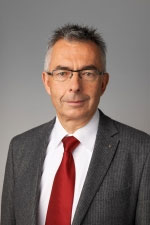 Prof Dr Ehrenfried Zschech is Department Head for Microelectronic Materials and Nanoanalysis at Fraunhofer Institute for Ceramic Technologies and Systems in Dresden, Germany, which he joined in 2009. His responsibilities include multi-scale materials characterization and reliability engineering. He holds an adjunct professorship at Faculty of Chemistry of Warsaw University, Poland, as well as honorary professorships for Nanomaterials at Brandenburg University of Technology Cottbus and for Nanoanalysis at Dresden University of Technology. Ehrenfried Zschech was appointed as distinguished research professor at Hankou University in Wuhan, China. He has published three books and he has authored or co-authored about 200 papers in peer-reviewed journals in the areas of materials science, solid-state physics and reliability engineering. Ehrenfried Zschech is member of the Board of Directors of the Materials Research Society (MRS) and Honorary Member of the Federation of the European Materials Societies (FEMS).
Prof Dr Ehrenfried Zschech is Department Head for Microelectronic Materials and Nanoanalysis at Fraunhofer Institute for Ceramic Technologies and Systems in Dresden, Germany, which he joined in 2009. His responsibilities include multi-scale materials characterization and reliability engineering. He holds an adjunct professorship at Faculty of Chemistry of Warsaw University, Poland, as well as honorary professorships for Nanomaterials at Brandenburg University of Technology Cottbus and for Nanoanalysis at Dresden University of Technology. Ehrenfried Zschech was appointed as distinguished research professor at Hankou University in Wuhan, China. He has published three books and he has authored or co-authored about 200 papers in peer-reviewed journals in the areas of materials science, solid-state physics and reliability engineering. Ehrenfried Zschech is member of the Board of Directors of the Materials Research Society (MRS) and Honorary Member of the Federation of the European Materials Societies (FEMS).
Ehrenfried Zschech has been actively supporting the German Materials Research Society (DGM) and the Federation of the European Materials Societies (FEMS). He was acting as DGM Board Member and as FEMS Executive Member. Ehrenfried Zschech was elected FEMS President for the period 2012-2013. He has been Member of the Steering Committee of The European Platform on Advanced Materials and Technologies (EUMAT) since 2013 and Operational Management Board Member of the European Materials Characterization Council since 2016.
Ehrenfried Zschech received his Dr. rer. nat. degree from Dresden University of Technology. After having spent four years as a project leader in the field of metal physics and reliability of microelectronic interconnects at Research Institute for Nonferrous Metals in Freiberg, he was appointed as a university teacher for ceramic materials at Freiberg University of Technology. In 1992, he joined the development department at Airbus in Bremen, where he managed the metal physics group and studied the laser-welding metallurgy of aluminium alloys. From 1997 to 2009, Ehrenfried Zschech managed the Materials Analysis Department and the Centre for Complex Analysis at Advanced Micro Devices in Dresden. In this position, he was responsible for the analytical support for process control and technology development in leading-edge semiconductor manufacturing, as well as for physical failure analysis.
Ludo Froyen | FEMS Treasurer 2011-2017
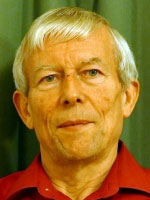 Ludo Froyen is professor in Materials engineering (Department Materials Engineering) and former dean of the Faculty of Engineering Science at the KU Leuven, Belgium.
Ludo Froyen is professor in Materials engineering (Department Materials Engineering) and former dean of the Faculty of Engineering Science at the KU Leuven, Belgium.
His research is in the field of development of new metallic materials and material systems, through innovative physical material science principals and creative process techniques. The concept cycle from new material to an industrially usable product is being approached in an integrated way: starting from the physical principals for the building of a microstructure (e.g. microstructural control in dispersion strengthened materials or of metal matrix composites) over the suitable process technique (often original techniques) to the complete characterisation of the manufactured material through advanced material characterisation techniques. This approach is applied on a broad range of considered materials and material systems. Investigated specific processing techniques are controlled solidification processes (e.g. directional solidification),innovative powder metallurgical techniques (e.g. mechanical alloying and synthesis, selective laser sintering and selective laser melting (additive manufacturing), combustion synthesis.
This research has both an extended basic scientific component (e.g. gain insight in complex solidification structure of multicomponent multiphase systems, reactive synthesis through combustion synthesis) as a clear application driven component (e.g. lightweight connecting rod for a car motor, components for high temperature turbines, matrix material for diamond-tools, …). This has led to some patents, together with industrial partners and black box know how for companies. He (co)authored more than 300 peer reviewed papers.
Within the research on solidification of complex alloys there has been success in the use of the micro gravity environment on board the manned and unmanned spacecrafts like Texus-, Maser- and Maxus rockets, Spacelab, Spacehab, MIR, International Space Station. Most research has been carried out from the start in an international context and with multi-disciplinary teams.
He is also closely involved the training of material science engineers and of academic engineers in general as program director of the Material Engineering education (1998-2002), programme director at the Engineering Science Faculty (2002-2005), vice-dean (2002-2005) and dean of the Faculty of Engineering Science (2005-2012). He participated at several local and EU education related projects such as Design, AQCA, ATTRACT, FOLLOW, SUMUP. He is chairman of the Ethical Commission Dual Use, Military use and Misuse and member of the Commission on Research Integrity.
He was treasurer of FEMS (Federation of European Materials Societies) from 2011 to 2017 and member of several professional, scientific and educational organisations e.g. SEFI (European Society for Engineering Education), CLUSTER (Consortium Linking Universities of Science and Technology for Education and Research), CESAER (Conference of European Schools for advanced engineering education and research), EPMA (European Powder Metallurgy Association).
Pedro Dolabella Portella | FEMS President 2010-2011
Department Head, Materials Engineering, Federal Institute for Materials Research and Testing (BAM), Germany
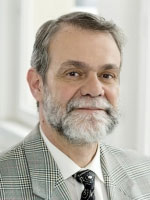 Pedro Dolabella Portella received his Bachelor degree in Metallurgical Engineering at IME, the School of Engineering of the Brazilian Army in Rio de Janeiro. After nearly two more years at the foot of the Sugar Loaf he received his Masters in Materials Engineering at the same institute. In 1984 he got his Dr.-Ing. degree in Erlangen, Germany, with a thesis on high-temperature creep of a Fe-Ni-Cr alloy. After a short stay at the Catholic University in Rio de Janeiro, PUC-RJ, he joined the Federal Institute for Materials Research and Testing (BAM) in Berlin, Germany, in 1987. Since 2000 he is the head of the Department “Materials Engineering”. According to the tradition of this institute, one of his concentration areas is failure analysis and prevention. In the period 2010-2011 he was the President of FEMS, the Federation of European Materials Societies. He is an Honorary Member of FEMS, of SPM, the Portuguese Society of Materials, and of SF2M, the French Society of Metals and Materials. In 2010 he received the August Wöhler Medal of DVM, the German Association for Materials Research and Testing, and the Robert Mitsche Award of ASMET, the Austrian Society for Metallurgy and Materials. In 2016, Pedro was admitted as a “fellow” to the “Alpha Sigma Mu” society at the “Materials Science and Technology 2016” conference in Salt Lake City, USA. ΑΣΜ was founded at the Michigan Technological University in 1932.
Pedro Dolabella Portella received his Bachelor degree in Metallurgical Engineering at IME, the School of Engineering of the Brazilian Army in Rio de Janeiro. After nearly two more years at the foot of the Sugar Loaf he received his Masters in Materials Engineering at the same institute. In 1984 he got his Dr.-Ing. degree in Erlangen, Germany, with a thesis on high-temperature creep of a Fe-Ni-Cr alloy. After a short stay at the Catholic University in Rio de Janeiro, PUC-RJ, he joined the Federal Institute for Materials Research and Testing (BAM) in Berlin, Germany, in 1987. Since 2000 he is the head of the Department “Materials Engineering”. According to the tradition of this institute, one of his concentration areas is failure analysis and prevention. In the period 2010-2011 he was the President of FEMS, the Federation of European Materials Societies. He is an Honorary Member of FEMS, of SPM, the Portuguese Society of Materials, and of SF2M, the French Society of Metals and Materials. In 2010 he received the August Wöhler Medal of DVM, the German Association for Materials Research and Testing, and the Robert Mitsche Award of ASMET, the Austrian Society for Metallurgy and Materials. In 2016, Pedro was admitted as a “fellow” to the “Alpha Sigma Mu” society at the “Materials Science and Technology 2016” conference in Salt Lake City, USA. ΑΣΜ was founded at the Michigan Technological University in 1932.
Bill TW Clyne | FEMS President 2008-2009
Professor of Mechanics of Materials, Gordon Laboratory, University of Cambridge
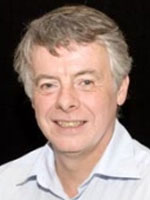 After completing his first degree and PhD in the Materials Science Department at Cambridge, Bill Clyne held University lecturing posts in Brazil, Switzerland and Surrey (UK), before returning to Cambridge, where he was appointed in 1999 to a chair in Mechanics of Materials. He has been the Director of the Gordon Laboratory (www.gordon.msm.cam.ac.uk), since its opening at that time. His research interests centre on the thermo-mechanics of composites and coatings, particularly processing, numerical modelling and fine scale mechanical interrogation. Details are available at www.ccg.msm.cam.ac.uk. He has authored over 300 papers, two textbooks (on composites) and 10 educational software packages. He is in the original ISI Highly Cited list (www.isihighlycited.com). He has been sole supervisor for over 80 PhD students in Cambridge and has given about 50 Invited Keynote Talks and Colloquia over the past 10 years. He was President of the Federation of European Materials Societies (2008-2009) and is now an Honorary Member. He has been Principal Investigator for many large projects, with an aggregate value running into several tens of £M, and has chaired 8 large international conferences. He is also the Director of DoITPoMS (www.doitpoms.ac.uk/), which maintains a globally-accessed Educational Materials Science website. Current Scientific Council memberships include IMDEA (Madrid), The Materials Science Cluster of Excellence (Erlangen) and the Jülich Helmholtz Centre for Energy & Climate Research. In 2004, he was awarded the Griffith Medal, a premier prize of the Institute of Materials. He was elected Fellow of the Royal Academy of Engineering in 2008 and Helmholtz International Fellow in 2014.
After completing his first degree and PhD in the Materials Science Department at Cambridge, Bill Clyne held University lecturing posts in Brazil, Switzerland and Surrey (UK), before returning to Cambridge, where he was appointed in 1999 to a chair in Mechanics of Materials. He has been the Director of the Gordon Laboratory (www.gordon.msm.cam.ac.uk), since its opening at that time. His research interests centre on the thermo-mechanics of composites and coatings, particularly processing, numerical modelling and fine scale mechanical interrogation. Details are available at www.ccg.msm.cam.ac.uk. He has authored over 300 papers, two textbooks (on composites) and 10 educational software packages. He is in the original ISI Highly Cited list (www.isihighlycited.com). He has been sole supervisor for over 80 PhD students in Cambridge and has given about 50 Invited Keynote Talks and Colloquia over the past 10 years. He was President of the Federation of European Materials Societies (2008-2009) and is now an Honorary Member. He has been Principal Investigator for many large projects, with an aggregate value running into several tens of £M, and has chaired 8 large international conferences. He is also the Director of DoITPoMS (www.doitpoms.ac.uk/), which maintains a globally-accessed Educational Materials Science website. Current Scientific Council memberships include IMDEA (Madrid), The Materials Science Cluster of Excellence (Erlangen) and the Jülich Helmholtz Centre for Energy & Climate Research. In 2004, he was awarded the Griffith Medal, a premier prize of the Institute of Materials. He was elected Fellow of the Royal Academy of Engineering in 2008 and Helmholtz International Fellow in 2014.
Wilfried Kurz | FEMS President 2004-2005
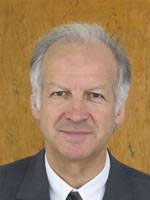 Wilfried Kurz is Professor emeritus of Materials Science and Engineering at the Swiss Federal Institute of Technology Lausanne (EPFL). He received his diploma and doctor’s degree from the University of Leoben, Austria. In 1964 he joined the staff of the Battelle Geneva Research Laboratories, which he left in 1971 as head of the physical metallurgy group to take up a position at the Swiss Federal Institute of Technology Lausanne (EPFL). Until his retirement in 2003, he directed the Laboratory of Physical Metallurgy as well as the Laser Materials Processing Centre. After participating in 1972/73 in the foundation of the Materials Science and Engineering curriculum at EPFL he was twice Head of Department. During 2001-2007 he served as a member of the Executive Committee of FEMS, and during 2004/05 as its president.
Wilfried Kurz is Professor emeritus of Materials Science and Engineering at the Swiss Federal Institute of Technology Lausanne (EPFL). He received his diploma and doctor’s degree from the University of Leoben, Austria. In 1964 he joined the staff of the Battelle Geneva Research Laboratories, which he left in 1971 as head of the physical metallurgy group to take up a position at the Swiss Federal Institute of Technology Lausanne (EPFL). Until his retirement in 2003, he directed the Laboratory of Physical Metallurgy as well as the Laser Materials Processing Centre. After participating in 1972/73 in the foundation of the Materials Science and Engineering curriculum at EPFL he was twice Head of Department. During 2001-2007 he served as a member of the Executive Committee of FEMS, and during 2004/05 as its president.
His main research activity has involved experimental and theoretical work on the development of microstructure in materials, specifically dendritic, peritectic and eutectic solidification, microsegregation and solid-state transformation kinetics and also on solidification processing such as continuous casting of steel, welding, laser treatment, rapid solidification processing, single crystal casting, directional solidification, and epitaxial single crystal laser repair. Co-author of four books (including “Fundamentals of Solidification” and “Introduction to Materials Science”) he has published some 230 papers and patents (ISI highly cited author).
Professor Kurz is a Corresponding Member of the Austrian Academy of Sciences. He is the recipient of the “Hans Malzacher Award” from the Austrian Society for Metallurgy and Materials, the “Bruce Chalmers Award” from The Minerals, Metals & Materials Society (TMS, USA), the “Medaille Guillet Bastien” of Société Française de Métallurgie et de Matériaux, the “Heyn-Denkmünze” of Deutsche Gesellschaft für Materialkunde, the “Luigi Losana Gold Medal” of Associazione Italiana di Metallurgia, “The European Materials Medal” from the Federation of European Materials Societies, the “Albert Sauveur Achievement Award” of ASM International, and the “Chinese National Friendship Award” of the People’s Republic of China. He is also an Honorary Member of the Iron and Steel Institute of Japan.
Paul Costa | 2001
 Paul Costa was born in Tunis in 1933. After graduating from Ecole Polytechnique in 1955 he studied chemistry and explosives at Ecole Nationale Supérieure des Poudres before undertaking research for a PhD in solid state physics at Orsay University. His career began in 1959 at the Nuclear Centre of the Commissariat à l’Energie Atomique (CEA) in Fontenay-aux-Roses where he remained until 1965. While at CEA he worked in the Plutonium Metallurgy Division undertaking solid state physics research on the transition metals, actinides, carbides and nitrides. During this period he spent time at the University of Cambridge, researching the plastic properties of ionic solids.
Paul Costa was born in Tunis in 1933. After graduating from Ecole Polytechnique in 1955 he studied chemistry and explosives at Ecole Nationale Supérieure des Poudres before undertaking research for a PhD in solid state physics at Orsay University. His career began in 1959 at the Nuclear Centre of the Commissariat à l’Energie Atomique (CEA) in Fontenay-aux-Roses where he remained until 1965. While at CEA he worked in the Plutonium Metallurgy Division undertaking solid state physics research on the transition metals, actinides, carbides and nitrides. During this period he spent time at the University of Cambridge, researching the plastic properties of ionic solids.
In 1965, he moved to Office National d’Etudes et de Recherches Aerospatiales (ONERA), where he remained until his retirement in 1998. From 1965 to 1979 he was Head of the Solid State Physics Division in which research was conducted on the electronic structure and plasticity of metallic alloys and compounds. In 1979 he became Director for Materials, with responsibility for research on all aerospace materials. In this capacity he was involved in the foundation of the Laboratoire d’Etudes des Microstructures (LEM), a joint venture between CNRS (Centre National de la Recherche Scientifique) and ONERA.
Between 1962 and 1977, Paul Costa devoted time to teaching chemistry and solid state physics at institutions including Ecole Nationale Supérieure des Télécommunications and Ecole Polytechnique. From 1979 to 1997 his involvements included membership of AGARD (the Advisory Group for Aeronautical Research and Development) and presidency of the materials group of GARTEUR (the Group for Aeronautical Research and Technology in Europe). He served as FEMS President, 1998-2000.
Since his retirement, Paul Costa has founded, and is president of, Assosciences Midi-Pyrénées, a federation for the Toulouse region of the major French scientific societies, which organises conferences, all of which are open to the public.
Gernot Kostorz | FEMS President 1993-1994
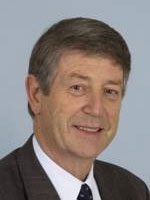 Prof Kostorz, a German citizen, was born on March 9, 1941 in Kattowitz/Upper Silesia. He studied physics at the University of Göttingen where he took his degree and earned his doctorate (Dr. rer. nat.) on the plasticity of crystals under Professor Peter Haasen at the Institute of Metal Physics. From 1968 to 1971 he held postdoctoral and Research Associate positions at the Argonne National Laboratory in Illinois, USA. In 1971 he joined the Institut Laue-Langevin in Grenoble, France, where he took part in developing neutron scattering methods for the investigation of crystal defects and phase transitions. From 1974 to 1978, he taught courses on plasticity and physical metallurgy at the University of Grenoble. From 1978 to 1980, he was a Senior Scientist at the Max Planck Institute for Metal Research in Stuttgart. Gernot Kostorz served as full Professor of Physics at the Institute of Applied Physics at the ETH Zurich from April 1, 1980 until his retirement on March 31, 2006. He was head of the Materials Faculty 1984/1986 and head of the Department of Physics 1996/1998. His research and teaching focused on the relationship between microstructure and properties of real solids. He was a guest scientist at the Argonne National Laboratory in 1977 and again in 1986 and a guest professor at Northwestern University, Evanston, Illinois, in 1995, at the Charles University, Prague, in 1996, and at the University of Vienna in 2005 and 2006. He has (co-) authored over 280 scientific papers and (co-) edited numerous books and conference proceedings.
Prof Kostorz, a German citizen, was born on March 9, 1941 in Kattowitz/Upper Silesia. He studied physics at the University of Göttingen where he took his degree and earned his doctorate (Dr. rer. nat.) on the plasticity of crystals under Professor Peter Haasen at the Institute of Metal Physics. From 1968 to 1971 he held postdoctoral and Research Associate positions at the Argonne National Laboratory in Illinois, USA. In 1971 he joined the Institut Laue-Langevin in Grenoble, France, where he took part in developing neutron scattering methods for the investigation of crystal defects and phase transitions. From 1974 to 1978, he taught courses on plasticity and physical metallurgy at the University of Grenoble. From 1978 to 1980, he was a Senior Scientist at the Max Planck Institute for Metal Research in Stuttgart. Gernot Kostorz served as full Professor of Physics at the Institute of Applied Physics at the ETH Zurich from April 1, 1980 until his retirement on March 31, 2006. He was head of the Materials Faculty 1984/1986 and head of the Department of Physics 1996/1998. His research and teaching focused on the relationship between microstructure and properties of real solids. He was a guest scientist at the Argonne National Laboratory in 1977 and again in 1986 and a guest professor at Northwestern University, Evanston, Illinois, in 1995, at the Charles University, Prague, in 1996, and at the University of Vienna in 2005 and 2006. He has (co-) authored over 280 scientific papers and (co-) edited numerous books and conference proceedings.
Prof. Kostorz was the first Vice-President (1991, 1992) and the second President (1993, 1994) of the Federation of European Materials Societies. He also served on the Executive Committee and various FEMS ad-hoc groups over many years and became an Honorary Member of FEMS in 2003.
He was Editor-in-Chief of the eight journals of the International Union of Crystallography (IUCr) from 2005 to 2012, Editor and Special Issues Editor of the journal Materials Science and Engineering A from 1984 to 2008, and is presently a Co-Editor of the Journal of Applied Crystallography. He has been General Secretary of the Swiss Association of University Professors since 2004. He is also an honorary member of the Metals Science Society of the Czech Republic (1996) and the Deutsche Gesellschaft für Materialkunde (DGM, 2004). In 2005, he received the “Heyn Denkmünze” of the DGM for his contributions to the introduction of neutron scattering in materials research.
Robert Lallement | FEMS President 1987-91
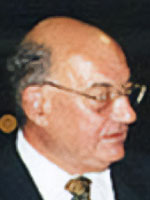 Robert Lallement was born in 1934 and studied as an Ingenieur de mines at the Ecole des mines de Paris from 1955-1958. He obtained his Master of Science degree at Caltech, USA, in 1959. After this ‘student period’, he entered the French Atomic Energy Commission in 1961, where he studied the physical properties of plutonium and plutonium compounds, and prepared a doctorate in solid state physics on “Magnetic Properties of Rare-Earth Carbides” in the Division of Metallurgy and Nuclear Fuels. He became head of that division in 1979, and was appointed in 1981 as director delegate for nuclear programmes. In 1989 he was given the responsibility for waste management and decommissioning. He retired in 1997.
Robert Lallement was born in 1934 and studied as an Ingenieur de mines at the Ecole des mines de Paris from 1955-1958. He obtained his Master of Science degree at Caltech, USA, in 1959. After this ‘student period’, he entered the French Atomic Energy Commission in 1961, where he studied the physical properties of plutonium and plutonium compounds, and prepared a doctorate in solid state physics on “Magnetic Properties of Rare-Earth Carbides” in the Division of Metallurgy and Nuclear Fuels. He became head of that division in 1979, and was appointed in 1981 as director delegate for nuclear programmes. In 1989 he was given the responsibility for waste management and decommissioning. He retired in 1997.
Some “friends” were kind enough to push him towards the French Metallurgical Society, of which he became president in 1987 for two years. During those two years, a concern grew among the French, German and British metallurgical societies; the American Metallurgical Society (AMS) was judged too aggressive in creating local sections of AMS in Europe. In reaction, it was decided to create FEMS, and Lallement was adopted as its first president, for two years.
The job was to create the statutes, to imagine how to operate (steering committee, executive committee, general secretary, financing, relations with Brussels, with other materials societies in Europe, relations with AMS, E-MRS, etc.) and also to define better goals and reasons to exist than to fight against AMS!
This period was really exciting, but after two years the job was not finished. He was asked to accept a second term. He accepted, “faute de combattants!”.
The First President is enjoying his retirement, hoping, with much justification, that the foundations of FEMS which were established during his four years at the helm are good enough for today. He remembers all the people involved in the job, and pays special tribute to Sir Geoffrey Ford, the FEMS General Secretary, who helped him and the others so much.
*Prof Walter Nicodemi | 2001
 After graduating as a Mechanical Industrial Engineer at Politecnico di Milano in 1961, where he became assistant professor in 1963, in 1969 Walter Nicodemi was nominated Full professor in Steelmaking at Politecnico di Milano. Upon the decision of the Academic Senate he was appointed Head of the Metallurgy Section of the same Politecnico and for three years he worked as Director of the Institute of Physical Chemistry Electrochemistry and Metallurgy at the same university.
After graduating as a Mechanical Industrial Engineer at Politecnico di Milano in 1961, where he became assistant professor in 1963, in 1969 Walter Nicodemi was nominated Full professor in Steelmaking at Politecnico di Milano. Upon the decision of the Academic Senate he was appointed Head of the Metallurgy Section of the same Politecnico and for three years he worked as Director of the Institute of Physical Chemistry Electrochemistry and Metallurgy at the same university.
In 1985, he was assigned the course of Metallurgy and became Head of the Materials Section of the Mechanics Department of the Politecnico di Milano.
He devoted most of his career to the study of stainless steels, obtaining very important achievements in the development of products and their application and diffusion. In 1968 he won the De Carli Award for his achievements in metallurgy studies, in 1990, the American Society of Materials made him a “Fellow” with the following citation: “for outstanding research and development achievements in stainless and special alloys technology and application” and during the same year he was awarded the Gold Medal of the A.I.M.
Professor Nicodemi was President of the A.I.M. for six two-year terms, covering the years 1986-1989, 2000-2003, and 2006-2009. He was also President of the F.A.S.T. (Federal Association of Scientific and Technical Societies) (1996-1998) and from 1994 to 1999 he was Chairman of the Italy Chapter of the A.S.M. He served as an Executive Officer of FEMS and in 2001 was appointed as an Honorary Member of the Federation.
During his career he published more than 180 papers in Italian as well as international journals and conference proceedings, and about 10 books on metallurgy in its different fields (physical metallurgy, technological problems, productive plants, etc.). Three of his most significant books were published by A.I.M.
His interests included metallurgical archaeology, and he edited “The Civilisation of Iron – from Prehistory to the Third Millennium”, published in 2004 by the Riva Group.
Walter Nicodemi died on 28 June 2011.
*Sir Geoffrey Ford | FEMS Secretary 1987-92
 Geoffrey Harold Ford was born in Lewes, Sussex, on 6 August 1923 and was educated at the town’s County Grammar School, where he displayed good abilities in science. He was selected for a place at university under the wartime “Hankey Scheme” which allowed promising youngsters to complete the first part of a science degree before recruitment to one of the services. After studying Physics at Bristol University for two years he was commissioned into the Royal Air Force in October 1942. His first appointment was to St. Margaret’s Bay, Kent, to a branch which had responsibility for the air defence radars for the south-east of England. He was then posted to command a mobile radar unit in Algeria before being moving it to Italy where he provided support to the fighter squadrons during the Allied advance up the west coast to Rome and beyond.
Geoffrey Harold Ford was born in Lewes, Sussex, on 6 August 1923 and was educated at the town’s County Grammar School, where he displayed good abilities in science. He was selected for a place at university under the wartime “Hankey Scheme” which allowed promising youngsters to complete the first part of a science degree before recruitment to one of the services. After studying Physics at Bristol University for two years he was commissioned into the Royal Air Force in October 1942. His first appointment was to St. Margaret’s Bay, Kent, to a branch which had responsibility for the air defence radars for the south-east of England. He was then posted to command a mobile radar unit in Algeria before being moving it to Italy where he provided support to the fighter squadrons during the Allied advance up the west coast to Rome and beyond.
After the war, he returned to Bristol University where he completed his degree with first class honours. In May 1947, he was appointed to a permanent commission as a Flying Officer in the RAF. During an enormously successful career he worked on ground-based radar defence systems, the development of bombing and navigational aids, and the development of guided weapons. He attained the rank of Air Marshall on 1 July 1978, by which time he was Controller of Engineering and Supply, in which capacity he was also the Chief Engineer of the RAF.
Following his departure from the RAF in April 1981, and not wishing to enter industry, he became Secretary of the Metals Society in London. He has been credited with transforming the Society into a 20th-century organisation with a Royal Charter as the Institute of Materials (now the Institute of Materials, Minerals and Mining). He fostered close relations with colleagues in France and Germany, helping to found the Federation of European Materials Societies (FEMS) in 1985, and serving as its first secretary from 1987 to 1992, when he finally retired.
Geoffrey Ford received two Orders of Chivalry from the Queen. In 1974 he was appointed CB (Companion of the Most Honourable Order of the Bath) and he was knighted KBE (Knight Commander of the British Empire) in 1978. He was also elected as a Fellow of the Royal Academy of Engineering. He died on 1 April 2007, being survived by his wife Valerie, whom he had married in 1951, and their two sons.
*Robert Singer | FEMS President 2006-2007
Chair of Materials Science and Engineering for Metals, University of Erlangen
 Robert Singer completed his Dr.-Ing. at the University of Erlangen and then held research and development posts at Stanford University and Asea Brown Boveri (Baden) before returning to Erlangen and becoming Head of the Institute of Science and Technology there. In parallel with this appointment, he has for a number of years been the Managing Director of Neue Materialien Fürth GmbH (http://www.nmfgmbh.de), an institution based near Erlangen that has extensive facilities for industrially-oriented research and development. Work there is oriented towards the development of innovative process technologies in order to manufacture near net-shape metallic and polymer lightweight constructions. He is also Head of the Joint Institute of Advanced Materials and Processes of Erlangen University (http://www.zmp.uni-erlangen.de), focused on interdisciplinary topics between Material Science, Mechanical Engineering, Chemistry and Physics. His research interests concern the development of new processes for materials and component fabrication (casting, powder metallurgy, coating technology etc), process modeling and development of advanced materials (particularly Ni-based superalloys and lightweight materials, such as aluminium, magnesium, composites and foams). Among his awards are the Georg-Sachs-Preis (DGM), the Lee Xun Award (Chinese Academy of Sciences) and Membership of the Bavarian Academy of Sciences. He has authored about 200 papers and has given many invited presentations, particularly concerning the processing of superalloys. He has also been responsible for many technological developments and industrial innovations. He was President of the Federation of European Materials Societies (2006-2007) and is now an Honorary Member.
Robert Singer completed his Dr.-Ing. at the University of Erlangen and then held research and development posts at Stanford University and Asea Brown Boveri (Baden) before returning to Erlangen and becoming Head of the Institute of Science and Technology there. In parallel with this appointment, he has for a number of years been the Managing Director of Neue Materialien Fürth GmbH (http://www.nmfgmbh.de), an institution based near Erlangen that has extensive facilities for industrially-oriented research and development. Work there is oriented towards the development of innovative process technologies in order to manufacture near net-shape metallic and polymer lightweight constructions. He is also Head of the Joint Institute of Advanced Materials and Processes of Erlangen University (http://www.zmp.uni-erlangen.de), focused on interdisciplinary topics between Material Science, Mechanical Engineering, Chemistry and Physics. His research interests concern the development of new processes for materials and component fabrication (casting, powder metallurgy, coating technology etc), process modeling and development of advanced materials (particularly Ni-based superalloys and lightweight materials, such as aluminium, magnesium, composites and foams). Among his awards are the Georg-Sachs-Preis (DGM), the Lee Xun Award (Chinese Academy of Sciences) and Membership of the Bavarian Academy of Sciences. He has authored about 200 papers and has given many invited presentations, particularly concerning the processing of superalloys. He has also been responsible for many technological developments and industrial innovations. He was President of the Federation of European Materials Societies (2006-2007) and is now an Honorary Member.
*Paul McIntyre | FEMS Secretary 2004-2010
Professor of Mechanics of Materials, Gordon Laboratory, University of Cambridge
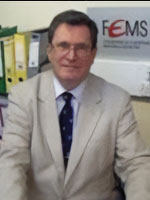 Paul McIntyre received his BSc degree in metallurgy from Kings College Durham/University of Newcastle upon Tyne. His PhD was granted in 1970 by the same university for his thesis on “Hydrogen Embrittlement of Niobium and Vanadium”. His professional career was centered on different aspects of corrosion and hydrogen assisted cracking of materials, having worked at the The British Iron and Steel Research Association in Sheffield, British Steel Corporation in Rotherham, CEGB/NPTEC/NPRT in Leatherhead and National Power in Swindon. He was involved for a long time with the BSI Committee ISE/NFE/8 and the ISO Technical Committee 156, both on corrosion of metals and alloys. Paul produced more than 200 publications during his professional life; for ten years he was the Editor of Corrosion Engineering, Science and Technology. For his technical-scientific contribution he was awarded the Saville Shaw Medal of the Society of Chemical Industry 1970 and the T. B. Marsden Award of the Institute of Materials, Minerals and Mining in 2003.
Paul McIntyre received his BSc degree in metallurgy from Kings College Durham/University of Newcastle upon Tyne. His PhD was granted in 1970 by the same university for his thesis on “Hydrogen Embrittlement of Niobium and Vanadium”. His professional career was centered on different aspects of corrosion and hydrogen assisted cracking of materials, having worked at the The British Iron and Steel Research Association in Sheffield, British Steel Corporation in Rotherham, CEGB/NPTEC/NPRT in Leatherhead and National Power in Swindon. He was involved for a long time with the BSI Committee ISE/NFE/8 and the ISO Technical Committee 156, both on corrosion of metals and alloys. Paul produced more than 200 publications during his professional life; for ten years he was the Editor of Corrosion Engineering, Science and Technology. For his technical-scientific contribution he was awarded the Saville Shaw Medal of the Society of Chemical Industry 1970 and the T. B. Marsden Award of the Institute of Materials, Minerals and Mining in 2003.
Paul was Secretary of the Federation of European Materials Societies between 2003 and 2010. With his friendly and precise nature, Paul was a key person in keeping the contact to our member associations and running the FEMS administration. In recognition of his services, the FEMS General Assembly nominated Paul in 2011 as an Honorary Member of our Federation.
Paul was also a consultant at the National Physical Laboratory, Teddington, and for fourteen years the Scientific Secretary to the European Federation of Corrosion; the Honorary Life EFC Membership was conferred to Paul for his commitment to EFC during EUROCORR 2011 in Stockholm.
NEWSLETTER
The FEMS newsletter is sent annualy by FEMS to all those who have signed up to receive it.
